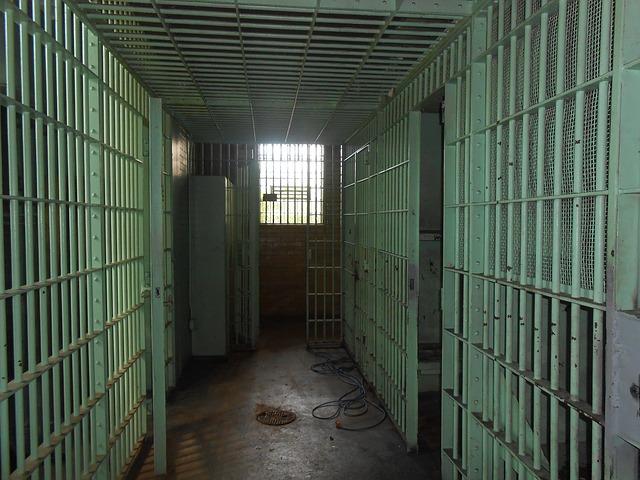The Federal Communications Commission has capped rates on inmate calling for the first time in the history of the prison system. Some say this change could impact Wisconsin inmates’ connection to the outside while others argue the cap is detrimental to funding the prison system.
The FCC said in a statement it will cap rates for local and in-state calling services for inmates at $0.11 per minute to make calling “reasonable and fair for all Americans.” It aims to help inmates connect with their families by keeping the cost of phone calls low. The current rate is approximately $0.20 per minute.
Bernadette Rabuy, senior policy analyst at Prison Policy Initiative, said the cap will encourage families to connect with their loved ones in the prison system. She said family connection is the best way to keep inmates from returning to jails or prisons after they are released.
Rabuy said the biggest deterrent of family connection is the high cost of inmate telephone services. She said these calls for inmates are over-priced compared to calls for non-incarcerated people.
“When we are talking about incarcerated people and their families, we are talking about poor people,” Rabuy said. “The prison system is disproportionately filled with people who are poor and people of color … and when you are talking about a high calling cost, it acts like a regressive tax on inmates and their families.”
Wisconsin Attorney General Brad Schimel said in a statement Wisconsin and other states are leading a coalition to oppose the rule and cap inmate calling rates. These states emphasize that state prisons and local jail incur “substantial” costs for inmate calling systems. These costs come from monitoring calls, escorting prisoners to and from phones and updating new technologies that may be security risks.
Wisconsin has the third highest prison budget in the United States. According to Vera Institute of Justice, the total state cost for Wisconsin prisons was $874.4 million in 2010. There is a need to curb these costs in some way or the other, which Schimel looks to do through the coalition.
Wisconsin along with Kansas, Louisiana, Missouri, Nevada, Arizona, Arkansas and Indiana have filed a case with the U.S. Court of Appeals to question the authority of the FCC ruling.
“FCC’s new rule is arbitrary, not authorized by federal law, and unconstitutional,” Schimel said.
FCC commissioner Michael O’Rielly said in a statement the rule was adopting excessive regulations and exceeds the legal authority of the FCC. He said the changes would lead to worse situations for prisoners, for whom he said he is “only so sympathetic.”
O’Rielly said these rate caps could force some providers to discontinue their services, which would undermine the goal of increasing communication between inmates and their families. He said any other savings from rate caps will be extracted in some other way.
It is not clear where these savings will be extracted from, but they will be at the expense of inmates, he said.
“The new ruling will not hurt the correctional facilities in the sense that they will not be able to recoup the cost of providing phone services,” Rabuy said. “What the correctional facilities are worried about is losing the commission.”
Kenneth Streit, University of Wisconsin Law School professor, said during the rapid expansion of prison populations in the 1990s, the private sector found many ways to profit off the prison system. One way of making a profit is earning commission from inmate telephone services, he said. O’Rielly said phone service providers receive some commission at the expense of inmates as well.
Streit said these compensations or commissions are labeled as “monitoring costs.” These costs have become a large source of revenue for many prisons and jails, said Streit. He said the FCC ruling will mostly cut profit for the phone service provider and not the correctional facilities themselves.
These providers are using correctional facilities as a “front,” since the public and legislators will be more supportive of “monitoring costs” than corporate profit, Streit said.
Private companies become the sole vendor for prisons and jails to connect inmates and the “outside world,” Streit said. He said companies compete with each other to provide the largest compensation, not the lowest cost for a prison or jail. Streit said that this system leaves inmates and families with no alternative.
“Because inmates had such low status in society, they were easy to kick around,” Streit said. “But, in reality, it was their families that paid the bills.”
The case against the FCC is currently pending in the U.S. Court of Appeals.


